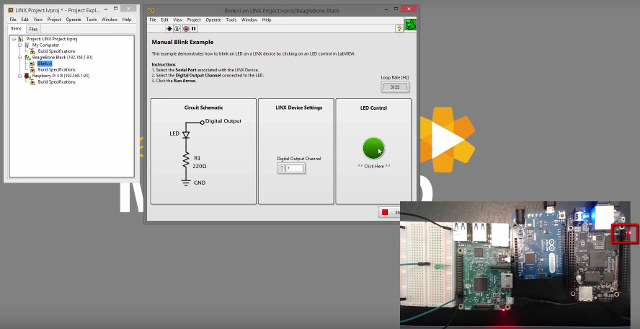LabView is a system-design platform and development environment with a graphical programming syntax that “makes it simple to visualize, create, and code engineering systems”. It’s often used with National Instruments hardware such as myRIO, but LabView Makerclub has also developed LINX to bring support to Arduino and chipKIT, and with the latest LINX 3.0, support for BeagleBone Black, and Raspberry Pi boards has been added.

You’ll need Labview 2014 (Windows only) or greater to work with LINX 3.0, as well as one of the supported development boards. Complete Labview 2014 + board kits are also sold with the BeagleBone Black Physical Computing Kit and Raspberry Pi 2 Physical Computing Kit both going for $89 on Digilent.
LabView files are save in VI format, and the same file can be used on Arduino, BeagleBone Black, and Raspberry Pi board with minor modifications (e.g. GPIO pin number) as shown in the blink demo below.
You can access the tutorials (mostly videos) for LINX 3.0 to find out more.

Jean-Luc started CNX Software in 2010 as a part-time endeavor, before quitting his job as a software engineering manager, and starting to write daily news, and reviews full time later in 2011.
Support CNX Software! Donate via cryptocurrencies, become a Patron on Patreon, or purchase goods on Amazon or Aliexpress




